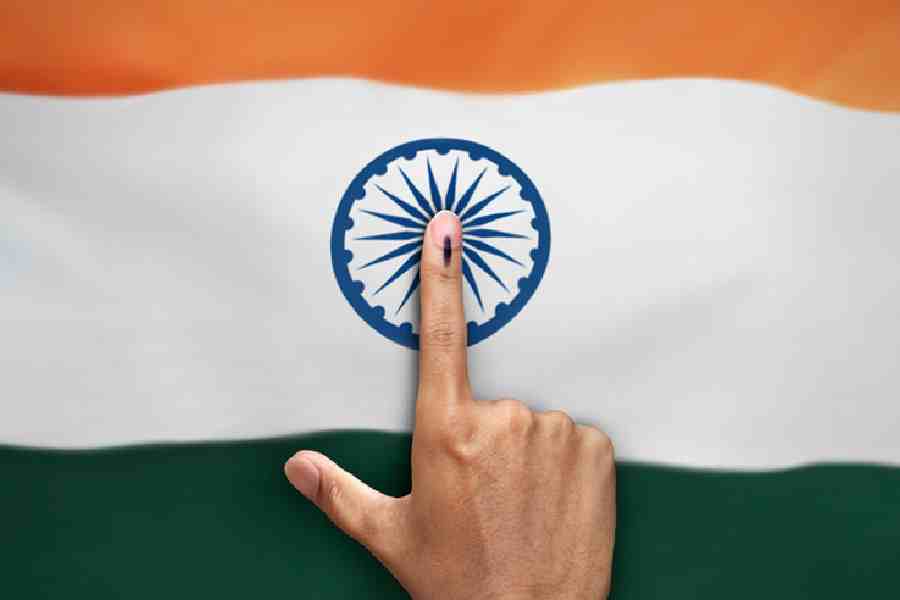As the polling date for the first phase of Lok Sabha elections in Uttar Pradesh draws near, all eyes are on the seats of Rampur, Moradabad and Sambhal and other seats of western UP, where the Muslims constitute 23 per cent to 42 per cent of the electoral population.
Around 15.34 crore people are eligible to vote in UP - a politically crucial state with 80 Lok Sabha seats where the elections will be held in seven phases from April 19.
According to the election schedule, eight parliamentary constituencies will vote in the first phase of the Lok Sabha polls on April 19. These are Saharanpur, Kairana, Muzaffarnagar, Bijnor, Nagina (SC), Moradabad, Rampur and Pilibhit.
The counting of votes will be held on June 4.
In the 2019 Lok Sabha elections, the Bharatiya Janata Party (BJP) won 62 seats and its ally Apna Dal (S) two seats, brushing aside the challenge of the SP-BSP alliance.
The Congress won the lone Rae Bareli seat of Sonia Gandhi. The Bahujan Samaj Party (BSP) was the biggest gainer in the alliance with 10 seats.
Akhilesh Yadav's Samajwadi Party (SP) won five seats and the smallest partner Rashtriya Lok Dal (RLD) couldn't open its account in the polls.
In the 2019 Lok Sabha elections, the alliance of the Bahujan Samaj Party, Samajwadi Party and Rashtriya Lok Dal had achieved considerable success in the Muslim-dominated region of western UP. However, the political equations have completely changed his time.
The BSP has decided to contest the elections alone this time, while the RLD, which has some influence in the Jat community of western UP, is standing with the BJP this time.
The Samajwadi Party and the Congress are contesting the polls in an alliance this time, with the grand old party attempting to regain its lost ground in Uttar Pradesh.
The Lok Sabha constituencies in western UP, where there is a sizeable Muslim population are --- Rampur (42 per cent), Amroha (32 per cent), Saharanpur (30 per cent), Bijnor, Nagina and Moradabad (28 per cent each), Muzaffarnagar (27 per cent), Kairana and Meerut (23 per cent each) and Sambhal (22 per cent).
Apart from this, the Muslim voters constitute 19 per cent of the electoral population each in Bulandshahr, Baghpat and Aligarh.
In the 2019 Lok Sabha elections, the BSP had won the Muslim-Dalit dominated seats of Saharanpur, Bijnor, Nagina and Amroha seats, while its alliance partner SP had won Moradabad, Rampur and Sambhal seats.
The BJP got the benefit of a split in Muslim votes in some seats of western UP, and its candidates registered wins from Muzaffarnagar, Kairana, Meerut, Bulandshahr, Baghpat and Aligarh Lok Sabha seats.
In the changed circumstances, the biggest concern for the SP-Congress alliance will be to prevent the scattering of Muslim votes because its victory on many Muslim-dominated seats can be possible only if the Muslim votes are united in its favour.
Political analyst Parvez Ahmed believes that this time the biggest challenge for the Samajwadi Party is to keep the Muslim voters united in its favour. A major reason for this is that since 2019, the SP has not been as vocal on Muslim-related issues as was expected from it. One thing is also that BSP has fielded Muslim candidates on every seat, where the Dalit voters are in good numbers after the Muslims.
He said that with the RLD joining hands with the BJP-led National Democratic Alliance (NDA), even those Jat voters who were away from it till now have associated themselves with the BJP.
However, Samajwadi Party spokesperson Fakhrul Hasan claims that Muslim voters are still standing strongly with his party.
At the same time, the RLD's alliance with the BJP will not have any impact on the prospects of the SP alliance because the alliance of the BJP and RLD is not natural. It has also been proved in the last few years that the RLD no longer has as much influence as was expected of it.
He claimed that in the 2019 Lok Sabha elections, the BSP had benefited from the Muslim votes of SP due to which it was successful in winning 10 seats. There was no alliance between the two parties in the 2022 assembly elections and the SP had won many Muslim-dominated seats in western Uttar Pradesh by defeating the BSP, hence it is not right to say that Muslim voters are getting disillusioned with the SP.
Meanwhile, UP BJP minority morcha's president Kunwar Basit Ali told PTI, "In the last Lok Sabha elections, there were about 20,000 booths where the BJP had lost. This time, teams of 11 members each, including women, have been formed at all these booths. These teams are especially trying to get their votes for BJP by contacting those sections of the Muslim society, who have got the benefits of various welfare schemes of the government. This time a target has been set to get at least 50 votes in those booths, where the BJP had got two, three or five votes." He said that in the 2019 Lok Sabha elections, the BJP got about 10 per cent votes of the Muslim community. This time the target is to increase it to 15 per cent, especially the Pasmanda Muslims, who are being linked to the BJP and who have benefited the most from the government schemes.
As far as the candidates declared by various political parties are concerned, the BJP has not given ticket to even a single Muslim this time in western UP while the SP and BSP have fielded several Muslims.
Except for the headline, this story has not been edited by The Telegraph Online staff and has been published from a syndicated feed.










